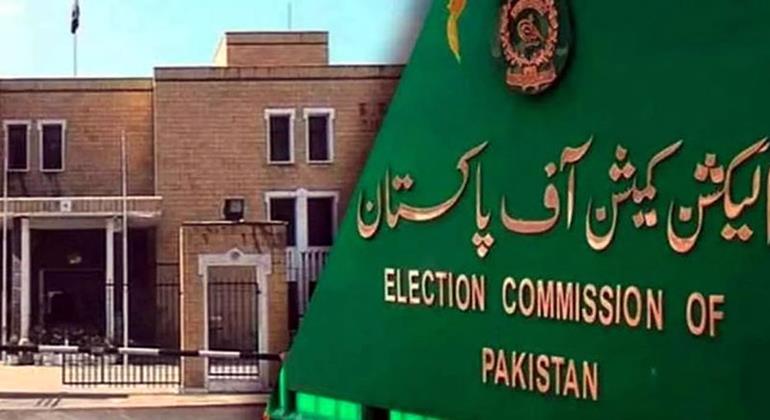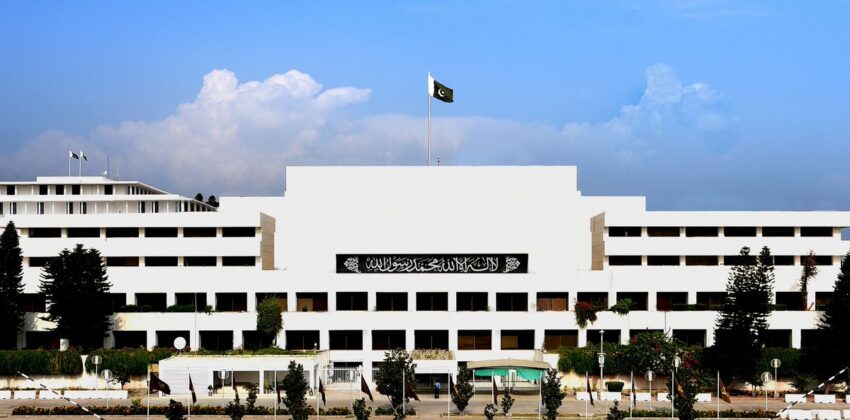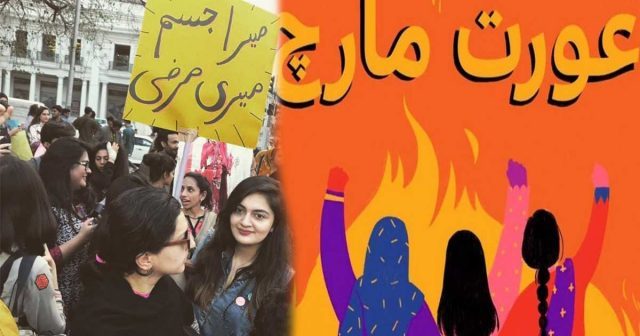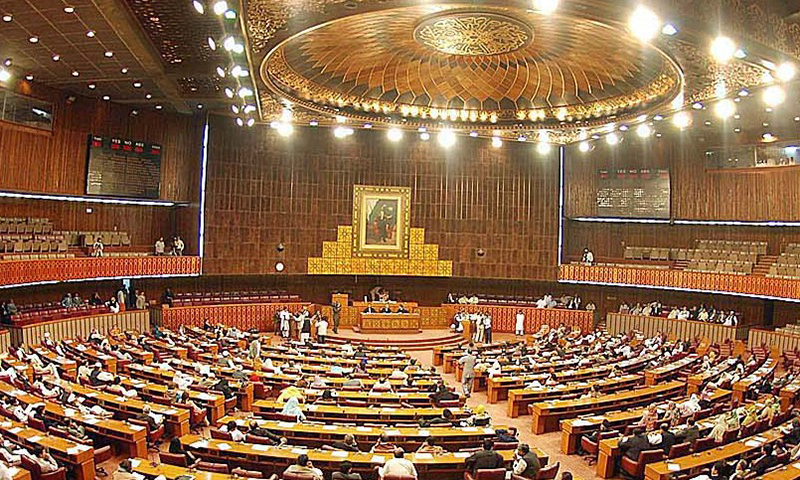Pakistan is all set to hold general elections on February 8 across the country in what is expected to be a closely contested and highly polarised political battle. The elections for the National Assembly and four provincial assemblies are simultaneously being held, as all major political parties have fielded their candidates in all the districts of the country.
The elections are seen as a test of democracy and stability in Pakistan, which has a history of military coups and political turmoil. The elections are also crucial for the future of the country’s relations with its neighbours and the international community, as well as its economic and social development. It is a positive development that after 2008, these are the fourth elections that are held without any gap, even though there was a gap of over six months in the 2024 election due to new delimitations after the digital census in 2023.
The main contenders
The main contenders for the elections are the ex-ruling Pakistan Muslim League Nawaz (PML-N), led by former Prime Minister Nawaz Sharif, who was ousted by the Supreme Court in 2017 on corruption charges; the Pakistan Peoples Party (PPP), led by Bilawal Bhutto Zardari, the son of former Prime Minister Benazir Bhutto, who was assassinated in 2007; and the Pakistan Tehreek-e-Insaf (PTI), led by former cricket star Imran Khan, who has emerged as a popular anti-corruption crusader and elected in 2018 elections, however, ousted via vote of no confidence by the opposition parties.
The PML-N is hoping to obtain a majority in the National Assembly and form the next government, as it claims to have delivered on its promises of economic growth, infrastructure development, and energy security. The PPP is aiming to regain its lost ground in its traditional stronghold of Sindh province and also make inroads in other regions, especially Punjab, which is the most populous and politically influential province. PPP Chairman Bilawal Bhutto Zardari, besides contesting from his ancestral seat in Larkana, is also contesting the National Assembly seat from Lahore. The PTI is banking on its appeal among the youth and the urban middle class, who are disillusioned with the status quo and want a change. PTI candidates are contesting as independent candidates because ECP refused to allow the party any symbols. After all, the party failed to fulfil the requirement of intra-party elections.
Besides these three main parties, there are also several other smaller parties and independent candidates who could play a decisive role in the formation of the next government. Some of these parties are based on ethnic, religious, or ideological lines, such as the Jamiat Ulema-e-Islam Fazl (JUI-F), a conservative Islamist party; the Muttahida Qaumi Movement Pakistan (MQM-P), a secular party representing the Urdu-speaking community in urban Sindh; the Awami National Party (ANP), a secular party representing the Pashtun community mainly in Khyber Pakhtunkhwa; and the Grand Democratic Alliance (GDA), a coalition of anti-PPP parties in Sindh.
The electoral system and the challenges

According to the Election Commission of Pakistan (ECP) rules, all the political parties have to provide at least 5 percent of general seats to women. There are reserved seats in the National Assembly and all provincial assemblies for women, which are allocated according to the seats acquired by each political party. Similarly, there are reserved seats for minorities, which are allocated after the election results on a proportionate basis.
The ECP is responsible for conducting free, fair, and transparent elections in the country and has taken several measures to ensure the transparency and credibility of the electoral process. The ECP has to ensure the deployment of army and paramilitary forces to maintain law and order and the establishment of a code of conduct for the candidates and the media.
However, the ECP also faces several challenges and criticisms, such as the allegations of pre-poll rigging, the lack of a level playing field, security threats, and legal disputes. The opposition parties, especially the PTI, have accused the ECP of being biased and incompetent and have demanded its resignation. They have also alleged that the PML-N has used its influence and resources to manipulate the electoral system and the judiciary in its favour.
The ECP has also faced several attempts to postpone or delay the elections but has resisted them due to the Supreme Court’s strict instructions. The Supreme Court has upheld the ECP’s authority and autonomy and has dismissed several petitions and appeals challenging the ECP’s decisions. The Supreme Court has also cleared the way for Nawaz Sharif to contest the elections by removing his lifelong disqualification and scrapping his conviction in some corruption cases.
The ECP has also faced the challenge of ensuring the security and safety of the voters and the candidates, amid the rising incidents of violence and terrorism in the country. Several deadly attacks have targeted the police and law enforcement agencies, as well as the political rallies and offices of various parties. The ECP has appealed to the public and the political parties to cooperate with the security arrangements and to refrain from any provocative or inflammatory actions.
The campaign and the expectations
The election campaign has been marked by high drama and heated rhetoric, as the political parties and their leaders have addressed the public rallies and the media in different areas of the country. The campaign has also witnessed several twists and turns, such as the emergence of new alliances and defections, the arrest and release of prominent politicians, and the exposure of scandals and controversies.
The PML-N has focused its campaign on highlighting its achievements and defending its leader, Nawaz Sharif, who has been portrayed as a victim of a conspiracy and a champion of democracy. The PML-N has also attacked its rivals, especially Imran Khan, for being incompetent and dishonest. The PML-N has also tried to woo the religious and nationalist voters by adopting a hardline stance on the issues of Kashmir and the US.

The PPP has focused its campaign on reviving its legacy and charisma by invoking the slogans and images of its founder Zulfikar Ali Bhutto and his daughter Benazir Bhutto. The PPP has also criticised the PML-N for its corruption and mismanagement and has offered a progressive and inclusive agenda for the country. The PPP has also tried to expand its base by reaching out to the women, the youth, and the minorities.
The PTI has focused its campaign on presenting itself as a viable alternative and a force for change by promising to end corruption and nepotism and to bring justice and accountability to the country. The PTI has also criticised the PML-N and the PPP for being dynastic and opportunistic and has claimed to represent the aspirations and sentiments of the masses. The PTI also faced a major setback when the ECP refused to allot it an election symbol, as the party failed to hold intra-party elections, which are mandatory to take part in the general elections. As a result, all the PTI candidates are contesting as independent candidates, and the party’s leader Imran Khan and his deputy Shah Mahmood Qureshi are in jail, after being convicted in some cases.
The election campaign has also generated a lot of interest and excitement among the public, especially first-time and young voters, who are expected to play a key role in the outcome of the elections. The elections are also being closely watched by regional and international observers, who are hoping for a peaceful and smooth transition of power in Pakistan and a stable and cooperative partner in the region.
The elections are expected to be a close and unpredictable contest, as no single party is likely to win a clear majority in the National Assembly, and the formation of the next government will depend on the post-poll alliances and negotiations. The elections are also expected to have a significant impact on the future of Pakistan’s politics, economy, and society, as well as its relations with the world.




